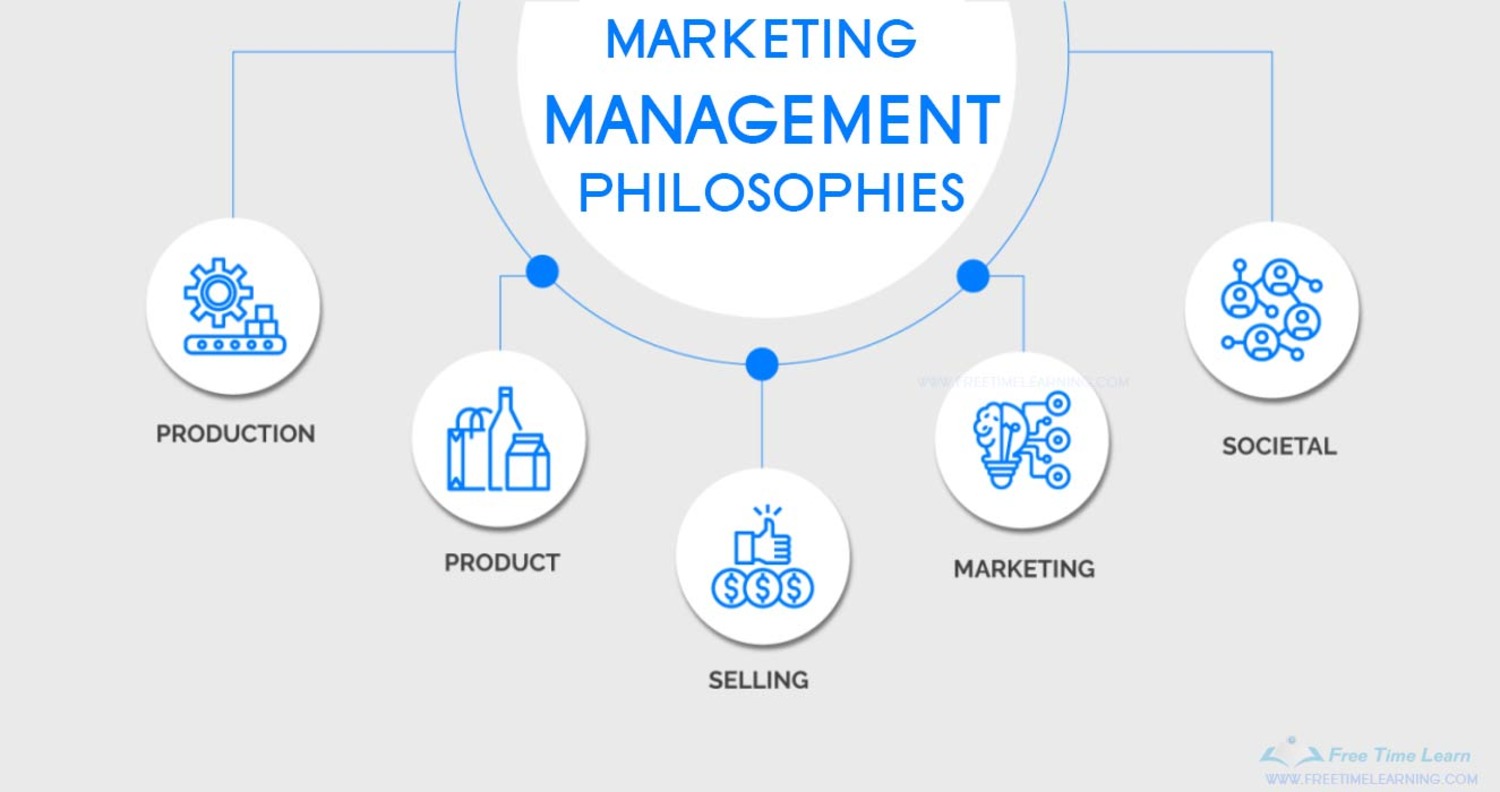Being a good marketing leader is more challenging than it appears. Any marketing management expert will tell you that their job consists of equal parts strategy, planning, execution, and analysis, and it’s simple to understand why. Marketing professionals with a documented strategy are more likely to succeed than their colleagues who do not have a defined plan.
What is marketing management, though? Marketing management is a way to find profitable opportunities and create these opportunities by satisfying the customers. Objectives of marketing management:
- Contributes to the company’s reputation
- Benefits economic growth
- Encourages fresh ideas
- Meet customer needs
- Serves as a means of publicizing new items
- Getting new consumers
- Profitability
- Gaining market share
Marketing management allows organizations to target specific customers and build relationships with them, which can yield profit. So please keep reading to understand more about marketing management and explore its advantages.
What is Marketing Management?
Marketing management supervises a company’s marketing components, identifies its goals, develops plans step by step, make business choices, and puts them into action to maximize turnover by meeting consumer expectations.
A marketing manager must conduct extensive research to understand marketing management and how to improve it for your company’s benefit. A proper understanding of the objective of marketing managers will also be of great help. This process focuses on product, venue, pricing, and promotion to attract customers.
These four P’s will define the company’s management based on customer demand for what they want to buy at acceptable market prices and conveniently accessible in stores or online.
See Also: Top 8 Digital Marketing Trends in 2024 to look out for
What is the objective of Marketing Management?
Marketing management is essential because it enables a company to compete effectively in a thriving market. This also helps in building strategies to increase profitability and lower product costs. Marketing management has evolved into the primary means of exchanging and transferring products. The objectives of any business are pre-determined, and the objective of marketing management drives them.
See Also: What does CPA stand for in Marketing?
It contributes to the company’s reputation.
A good firm is distinguished by its market reputation. Marketing entails selling, purchasing, trading, and shipping commodities to develop a company’s reputation. Suppose a company performs well on these dimensions. In that case, it will be able to stand steady and develop a clear and positive reputation among the public, which is the lifeblood of any business and cannot dispute.
If a good reputation is established, it will benefit the company’s growth and promotion. Respectable and respected organizations make no compromises and make every effort regarding reputation. Companies with a high reputation have more opportunities to expand and receive more contracts, becoming more market-competent and economically powerful.
Understanding the difference between Event Marketing and Sports Marketing can further refine your strategies in building and maintaining reputation, catering to specific audiences, and achieving long-term success in your marketing endeavors.
It benefits the company’s economical growth.
Marketing management determines how to outperform the market competition and increase revenue. They create strategies to market their items effectively. And when they advertise the products, they are on the public’s radar to be observed and known.
Advertisements assist in promoting the product description to a large number of people, including friends and relatives. If a female learns about a flat 50% discount on clothing brands, she will inform her friends and family, thereby expanding the marketing of that brand’s items.
It encourages the spread of fresh ideas.
Marketing management assists in the promotion of new ideas that rely on public advantages and offers for them to seize quickly. By separating them from the existence of other companies in the market, these concepts continue to foster and diversify enterprises.
These suggestions will help the organization understand the current market need and avoid taking the wrong route.
Meet customers’ needs
Another important objective of marketing management is to keep pleased clients loyal to the company’s products for a long time. For this goal, quality is vital, but so is good service, such as fast product delivery and product delivery without damage.
It serves as a means of publicizing new items.
New items released by a corporation with which the general public is unfamiliar must be marketed. Marketing management enables better and more successful product publicity, attracting many people to a new product.
Marketing management informs the audience if they are selecting a decent product.
Getting new consumers
Marketing management primarily aims to attract new customers and increase product sales. Various strategies will guarantee as many customers as possible are drawn to the company’s products. It includes airing television or social media commercials, distributing brochures, and assembling a sales team to demonstrate things.
See Also: Digital Marketing Agencies in Pittsburgh [Top Picks]
Profitability
A company cannot survive eternally if it does not produce a profit. Any business’s lifeblood is profit, which is necessary for a company’s expansion, diversification, and maintenance. To attain this aim, a company must first grasp the objective of market management and marketing management. And how will we achieve these market objectives?
To optimize profit and development, a company’s management team keeps marketing on track by pleasing existing and trustworthy customers and recruiting new customers.
Gaining market share
Marketing management is also beneficial in increasing the market share of your business. Companies use a variety of tactics to compare their items to the market economy to maximize market sales. To entice customers, businesses occasionally offer discounts, develop eye-catching packaging, and provide unique services.
What are the seven marketing principles?
Product, pricing, location, promotion, people, processes, and physical proof are the seven marketing principles commonly known as the expanded marketing mix or the seven Ps. They relate to the various factors that persuade customers to conduct business with your organization.
See also: 6 Best Strategies of Marketing Segmentation.
What is the concept of a marketing process?
A corporation’s actions to identify its brand’s value to customers locate sales possibilities. And targeting its outreach to a specific audience is referred to as the marketing process.
Steps for Marketing Management
Managers may use these procedures to maximize marketing operations from all viewpoints. Among the most popular methods are:
Market and customer analysis: This marketing management method aims to comprehend your company’s market position and analyze consumer behavior.
Strategy, goals, and Objectives Development: Where does a company wish to go? How does it intend to arrive? Following the market and consumer study, the strategy will chart the action.
Product development: Marketing managers are essential in the creation of new products. When it comes to communicating the advantages of a product, these experts can assist in crafting compelling, on-brand marketing.
Implementation of marketing programs: Once the choice of potential initiatives and campaigns has been made through the selection process, it is time to devote the necessary resources to their implementation.
Controlling: Analyzing the success of marketing plans and activities is an important step, and it influences how future operations will be under the planning process and implemented.
See Also: Why Is Goal Setting Important To Inbound Marketing
What is the process of developing a Marketing Management strategy?
A marketing management plan will complement a company’s overall marketing strategy. In contrast, the marketing strategy entails the organization’s aim of reaching consumers and markets. The marketing management strategy entails developing a marketing plan to attain those goals and utilizing various tools to ensure success.
A brand audit frequently precedes a marketing strategy, allowing a firm to ask and answer various questions that will guide the future marketing management plan. The facts one must take care of while formulating its plan are how well is the current brand strategy working. They must do a business SWOT analysis and consider it in the marketing management strategies, etc.
A brand audit will provide a comprehensive picture of a company’s competitive advantage in the market. And any impediments that must be solved in the future to optimize profitability. After appropriate team members respond to these questions, strategic marketing management decisions will be to define set goals and progress the company’s marketing vision.
The marketing management strategy is the collection of operations necessary to accomplish the marketing strategy goals of the organization. And it comprises factors such as pricing points, product specifications, market location, and promotion.
How is a marketing plan carried out?
A marketing management plan requires many techniques, resources, and technology usage.
Management marketing activities
For a marketing management plan to achieve these goals, a wide variety of marketing channel management operations relating to pricing, product, place, and promotion are crucial. The marketing mix is a common name for this. The marketing manager’s responsibility is to change each component to increase sales and ROI.
The following categories best describe the marketing management activities:
Price
The cost of a good represents its value in money. It depends on the product’s demand, production costs, the target market group, and the customers’ purchasing power.
Product
For the rest of the marketing mix to be effective, the product currently on the market must focus on the target market.
Place
In marketing management, the term “place” refers to the general and specific locations where buyers can buy a product. Making decisions here will require deciding if something will be available offline or online and where exactly.
Promotion
After manufacturing and optimization, the product can promote itself through various advertising channels, direct marketing, news releases, and even incentives.
What constitutes the general marketing mix?
The extended marketing mix is a development of the previously discussed marketing mix. It only concentrates on businesses that provide services rather than tangible items. Along with price, product, place, and promotion, the expanded marketing mix also consists of the following:
- People: A company’s workforce is essential. They offer services, and their level of education or pay is a factor in the marketing mix.
- Service: Businesses rely on procedures to guarantee that clients obtain a high-quality outcome, and practices are responsible for productivity and efficiency.
- Physical proof: In service environments, such as a hair salon, the physical site adjustment is essential for the consumer’s experience to promote better word-of-mouth marketing.
Marketing Management Philosophies
The marketing direction, position, and actions are the subjects of determining marketing management philosophies. “Marketing management principles” is the term used to describe these philosophies.
These ideas have evolved throughout time, but they typically determine the priorities of marketing activities.
- Putting efficiency first in the production process
- Product Idea: Gives the product’s quality top priority (s)
- Customer satisfaction is the company’s top priority.
- Marketing idea: Puts profits before customer delight.
- Prioritizes how marketing initiatives will affect society as a whole.
These ideas support marketing managers in formulating strategies and improving their methods. They also specify how monitoring is essential because every concept has success criteria and benchmarks.
What is a marketing manager’s job description?
Depending on the company’s size, the scope and duties of marketing management positions range from managing the company’s social media accounts to studying client data. In a small or medium business, all or some of the following responsibilities might be those of a marketing manager:
- Defining the company’s marketing function’s objectives and goals
- By conducting market research on the clientele, the corporation may determine which Market segments are suitable for its advertising campaigns.
- Cooperating with outside suppliers for occasions or other departments to complete the visual design of materials
- Managing the marketing budget, keeping an eye on it, and making the necessary adjustments to ensure the proper advertisement of the products and services.
What are the duties of marketing management positions?
Large teams and comprehensive roles in marketing management are in larger organizations. Every function in specialized marketing management has different responsibilities, from product marketing manager to digital marketing manager.
The following five roles in specialist marketing management are examples:
Digital Marketing Manager
An organization’s product and service promotion and brand strength depend on a digital marketing manager’s development, implementation, and management of online marketing campaigns.
Product Marketing Manager
A product marketing manager creates marketing strategies to inform consumers about the features and advantages of new products. They also conduct in-depth market research into current product trends and act as the company’s customer advocate to ensure products are created with the target market’s needs in mind.
Brand Marketing Manager
A brand marketing manager ensures that the company’s language and graphics are used consistently throughout the organization and develops strategies to raise brand recognition in the marketplace.
Social Media Marketing Manager
A social media marketing manager’s responsibility is to maximize interactions and communication on platforms like Facebook, Twitter, and Instagram for the company’s sake. Using social media channels, they work to strengthen and promote an organization’s brand(s). This job has a variety of creative, analytical, and management components.
Marketing campaign manager
A manager of a marketing campaign is in charge of the life cycle of a marketing campaign. They collaborate closely with various departments, including sales, to conduct campaigns and generate information on their efficacy.
See Also: What Is Performance Marketing And How To Get It Started?
FAQs
Why do marketers use channels?
How marketers inform their audience about their business and products is referred to as marketing channels. Even though the number of channels available to marketers appears to increase daily, there are a few that they should make sure to include in their marketing strategies since they are the most efficient means of interacting with consumers and realizing the team's marketing strategy.
Which 5 marketing management functions are there?
The traditional functions of marketing management include planning, implementation, deployment, and measurement.
What sets marketing and marketing management apart from one another?
Marketing is a group of initiatives designed to inform customers about your goods. Management of the marketing function refers to marketing management in business.
Conclusion
Marketing management is critical since every business plan must reach and engage with potential customers. Without attaining the objective of marketing management, you may spend years developing a product for launch just to hit several barriers.
Marketing management’s main objective is to ensure you understand your customer’s preferences. And it is even down to colors and packaging right from the outset. Your goods may only be desirable to customers if you have them.
After you’ve spent significant time preparing your product or service for release, reasonable marketing management procedures ensure it reaches the right audience through the proper channels at the right time. It has the potential to turn a mediocre business into a profitable one. It has the potential to turn a modest business into a profitable one.
This is conceivable if a marketing management team can review customer profiles and market share beforehand. Then analyze campaign outcomes, team performance, ROI, and expenditures after completing the project.










